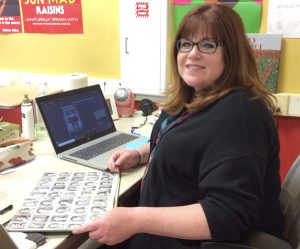Mt. Diablo High School turns back the clock, honors Class of ‘42 Nisei

CONCORD, CA (June 16, 2022) — Mt. Diablo High School made history this year when the school conferred diplomas retroactively to honor 39 Japanese-American students of the Class of 1942.
The students had been forced to leave school when their families were evacuated to Relocation Centers scattered all over the country during World War II. This year marks the 80th anniversary of one of the darkest events in American history.
“It’s never too late for restorative justice,” said Kimiyo Tahira Dowell, a 1958 Mt. Diablo alumna who helped students from Laura Valdez’s ethnic studies class identify and locate the Nisei students.
Many were on the honor roll, star athletes or, like Sumiko Watanabe, student body officers. Only five are still living and being well into their 90s, they were unable to travel.
However, nearly two dozen family members attended to receive diplomas on behalf of parents, grandparents, aunts, uncles and cousins.
Valdez said some of the relatives were close to tears when she told them about the school’s efforts on the phone. Many of their elders had never spoken of the incarceration because it was so painful.
Uprooting families

President Franklin Roosevelt issued Executive Order 9066 in response to the Japanese attack on Pearl Harbor on Dec. 7, 1941. In a misguided questioning of their loyalty, certain people – mainly those of Japanese descent, regardless of whether they were citizens or not – were prohibited from living on the West Coast.
Valdez’s students watched old propaganda films showing families loaded on busses with only what they could carry in suitcases. The busses were bound for Manzanar in the California desert, others for Gila, Ariz., or camps scattered around the country where the families would remain for the duration of the war.
A few were lucky enough to return to their homes after the war ended, but most lost everything: homes, possessions, farms, businesses.
Andrew Nakatani’s father, Tohoru Tom Nakatani, was a Bay Area farmer whose family was incarcerated in 1942. His father died in 2020, but Andrew was on hand to receive his diploma.
“He rarely spoke of the camps,” Andrew told the Pioneer at the graduation ceremony. “I think he worked hard to be the best he could be to be sure nothing like that could ever happen again.”
Harsh history lesson
As the students dug deeper into history, they were both energized and enraged. They became committed to restorative justice to counter the current climate of anti-Asian discrimination and violence. The need for awareness became even more acute when a school board member said they didn’t know about the Japanese internment until they were in college.
With Dowell’s help and their teacher’s encouragement, the students turned their anger to action. They lobbied the Mt. Diablo Unified School Board to confer the diplomas retroactively based on a 2003 California law that allowed school districts to retroactively grant diplomas to students who had not received them due to their incarceration during World War II, among other provisions.
Dowell was just 19 months old when her family was evacuated from their farm at Kirker Pass Road and Concord Boulevard, where they grew tomatoes and strawberries on land leased from the Frank family – early Concord settlers and large landholders in the area.
“Mrs. Frank drove us to the railroad station.” Dowell said.
Dowell’s grandparents worked on the Bancroft ranch, where her mother was born. Ruth Bancroft stored their belongings until they returned. Her younger brother was born in the camp at Tule Lake.
She has some vivid early memories of the camp.
“I can remember one time my brother was sucking a bottle of rare fresh orange juice when we had food rationing,” Dowell recalled. “I can still drool at the smell of fresh orange juice.”
When released in 1946, the family returned to a home on Whitman Road in Concord, and Dowell started school at Oak Grove Elementary. She spoke only Japanese. She graduated from Mt. Diablo High School in 1958.
Rising above hate

Dowell and Valdez connected over a post on Facebook. Eager to advance awareness of the relocation effort, Valdez spoke to her class and soon the students took on the project.
“My portion was to help locate those students,” Dowell said. “We used old yearbooks, the Internet, military records, rosters of the internees and military intelligence records – even Ancestry.com.
“It was such a painful experience, people didn’t talk about it much,” Dowell added. “So, our students had to reach back in history and bring it forward. Now they are aware of people with faces and names.”
A few students shared their excitement on social media. However, they faced negative scapegoating and racist responses on the Claycord.com blog.
“It was a real eye-opener for these students when they learned that no good deed goes unpunished,” Dowell said. “But they rose above it. All it did was coalesce the students even more to become emboldened engaged citizens.”
